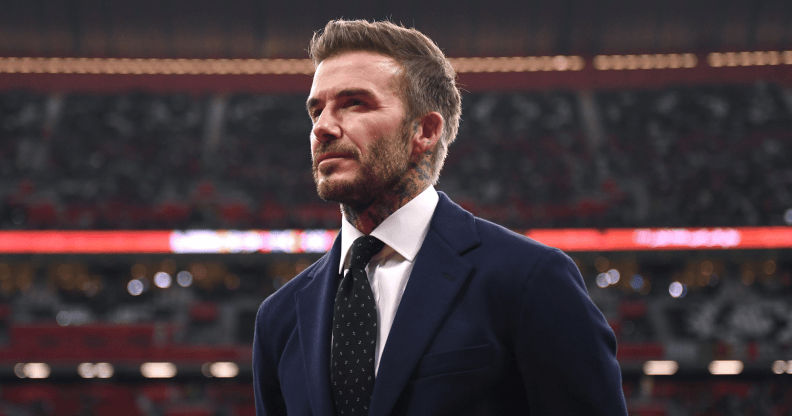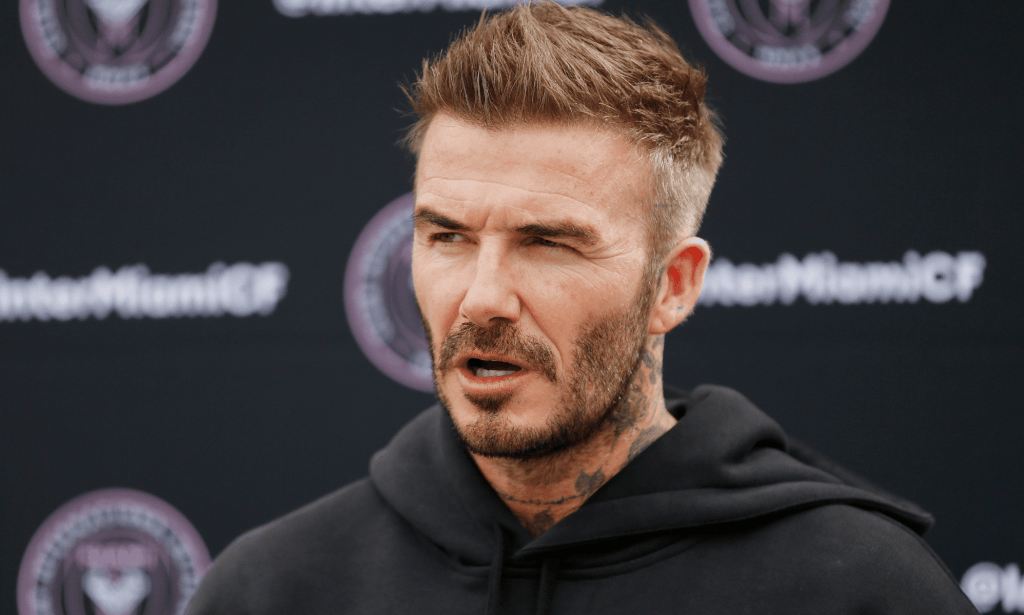David Beckham stands by Qatar ambassador role despite LGBTQ+ rights concerns

David Beckham stands by his ambassadorship with Qatar for last year’s FIFA World Cup. (Getty)
David Beckham has proudly stood by his decision to serve as a football ambassador for Qatar at last year’s FIFA World Cup, despite the country’s anti-LGBTQ+ laws and human rights abuses.
The football legend faced heavy backlash over the multi-million-pound deal, with the country that criminalizes homosexuality, from LGBTQ+ advocate groups and celebrities like Will Young, Drag Race UK finalists, and Joe Lycett.
But despite concerns, Beckham, who had been a gay icon for decades, went ahead with the ambassador deal, insisting that the football pitch would be a “platform for progress.”
Now that Beckham has had time to process all of the criticism, the sports star has insisted that he wasn’t fazed.

While speaking at the premiere of his new Netflix documentary, Beckham was asked if he had done any research into Qatar’s harsh anti-LGBTQ+ laws before he signed the controversial deal.
“I always do that,” he claimed, according to Sky News.
“Let the football do the talking, it was a great tournament, a lot of people were happy.”
He continued: “I had a lot of conversations with the LGBTQ community when I was there.
“They said they had enjoyed the games and they felt it was the safest World Cup they’d had for a long time, it was an important competition and one I was proud to be a part of.”
The former Manchester United player concluded: “I’ve always said that football is a game that should be shared around the world. This was an opportunity for the Arab world to get a World Cup.”
Beckham’s multi-million-pound deal with Qatar probably earned the most backlash from Joe Lycett, who threatened to shred £10,000 of his own money if the ambassadorship went ahead, and promised to donate that same £10,000 to LGTQ+ charities if he pulled out of the deal.
In the end, when Beckham went ahead with the deal, Lycett posted a video of himself shredding the money – but later revealed that he had in fact donated the money to LGBTQ+ charities and instead shreddedNBeckham’s groundbreaking 2003 cover of LGBTQ+ magazine Attitude.
Eventually, Beckham’s team issued a rather disappointing statement to Lycett’s team, claiming that football “has a genuine ability to bring people together and make a real contribution to communities”, and that the “different and strongly held views” about his engagement with Qatar were a positive sign that “debate about key issues had been stimulated” by the first World Cup in the Middle East.
In response, Lycett issued a scathing statement about so-called allies.
“Particularly companies and celebrities who like to think they are our allies to our community, who are happy to slap a rainbow on when it doesn’t cost them anything but looked the other way when it came to the World Cup,” he said.
“What I say is we need allies, but allies we can rely on not to run away the moment it looks difficult or when the first yellow card is threatened.
“We need everyone to be our allies and we need them to remember that being an ally is for life not just for Christmas specials.”
How did this story make you feel?

